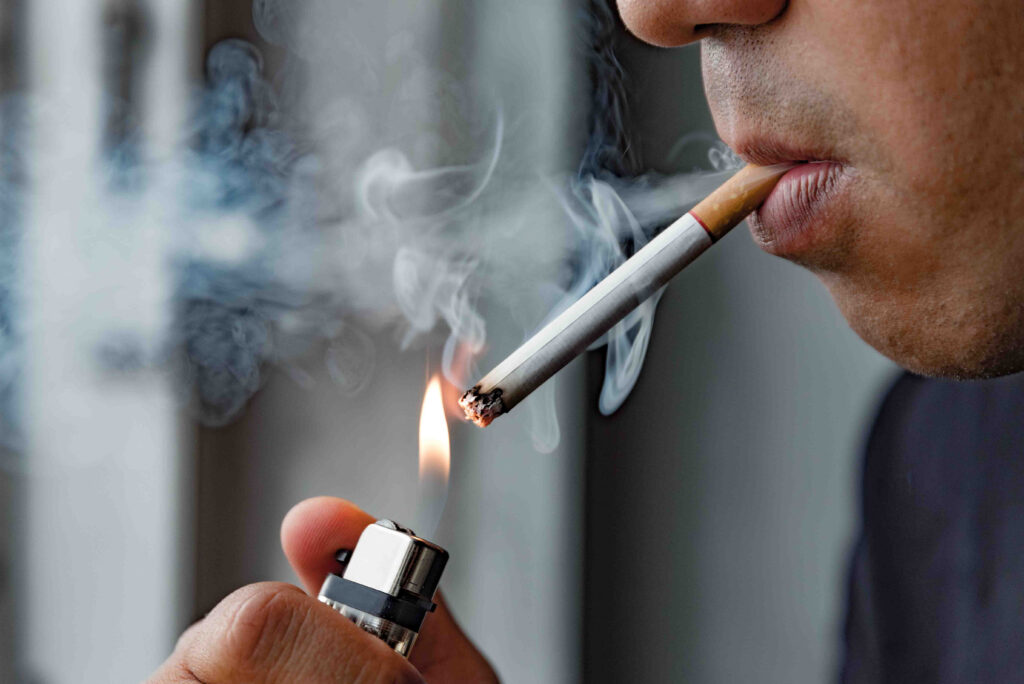Most life insurance policies require answering questions about your health and lifestyle choices. It’s relevant to them because your health and your habits directly impact how long you can be expected to live, and a shorter life means less time paying premiums. However, if you’re a smoker, you can still get life insurance, and there are steps you can take to make your rates lower.
How Secure Insurance Group Evaluates You
Secure Insurance Group prioritizes affordability, even for those who aren’t in perfect health. Everyone ought to be able to provide a better future for their loved ones, regardless of smoking status. We put better deals in your hands instead of keeping quality insurance out of reach.
Why Secure Insurance Group Is Great For Smokers
We offer fair rates because smoking isn’t the only factor we consider. You’ll be able to find better rates here – especially if you’re younger without any health complications.
Who Is Considered A Smoker?
When someone identifies as a smoker, it’s assumed that they smoke cigarettes on a regular basis. However, insurance companies have a broader definition. For insurance companies, using any of the following on a regular basis can cause someone to be labeled as a smoker:
- Nicotine gum
- E-cigarettes or other vaping devices
- Cigars
- Nicotine patches
- Chewing tobacco
- Tobacco pipes
As for those who use cannabis instead of tobacco, some insurers will consider someone to be a non-smoker if cannabis use is limited to a certain number of times per week.
Why Do Insurers Ask About Tobacco Use?
One out of every five deaths is caused by a disease or illness stemming from tobacco use. Smoking causes numerous forms of cancer, it can lead to heart attacks and strokes, and it reduces life expectancy by at least 10 years on average.
This reduced life expectancy means less time paying premiums. Insurers rely on premiums to be able to continue business operations, and assigning the same premiums for smokers as non-smokers puts the company at risk for losing at least 10 years’ worth of payments. Instead, insurers charge smokers more as a way to compensate for this lost time.
Does Frequency Of Tobacco Use Matter?
Not everyone uses tobacco on a daily basis. There are individuals who reserve cigar smoking for special occasions, and others may only smoke during social gatherings.
Fortunately for those who reserve their tobacco use for special occasions, insurers can assign infrequent users lower rates than daily smokers. In fact, those who smoke cigars no more than once per month may get the same rates as non-smokers, depending on the company’s leniency toward tobacco use.
What If I Quit Smoking After Getting My Policy?
Changing your smoking habits can also benefit you greatly. If you quit smoking and you’ve gone 12 months or more without using tobacco, you may be able to get re-evaluated and be considered a non-smoker. Your rates will decrease after re-evaluation – unless you’ve acquired a smoking-related disease, at which point you may be paying even more due to ailing health.
How Do Life Insurance Companies Know Who’s Telling The Truth About Their Smoking Habits?
Knowing how much smoking will affect your rates may tempt you to lie on your application if you’re a smoker. Your best option is to go against that urge and instead be as transparent as possible. Tell them whether you use cigarettes, cigars, pipes, e-cigarettes or other vaping devices, and/or chewing tobacco, and disclose how often you use them.
The first way insurers can verify whether you’re telling the truth is the presence of cotinine (a nicotine byproduct) in your blood, urine, hair, and saliva detected after your medical exam. Once detected, insurers are able to gauge how frequently you consume tobacco by the levels of cotinine found, measured in nanograms per milliliter (ng/ml). A frequent smoker will have levels as high as 1,000 ng/ml, but an occasional user may show levels around the 30 ng/ml mark.
Other means of confirmation include the sound of your voice and your social media profile. Smoking has a distinct impact on a person’s voice, and becomes more noticeable over time, especially with chronic users. If you post on social media, insurers may look to see if you have pictures of you smoking (or consuming other substances).
If it’s proven that you’ve lied on your application, the company may void your policy altogether.
Should I Quit Smoking Before Getting Life Insurance?
It is true that smoking will cause your rates to go up, and it’s also true that going without smoking for a certain period of time will enable you to be considered a non-smoker. You may think that your best option will be to wait to get life insurance until after you’ve stopped smoking.
Waiting isn’t always the best strategy. There are other factors affecting your rates than your tobacco use, and those include age and health complications. The older you are, the higher your premiums will be, and if you develop a health problem during that time, your rates will be even higher. Smoking may raise your rates, but not to the same extent as advanced age and adverse health circumstances.
Your best move is to join a policy as soon as you can, and then work on quitting smoking. Your insurer may even offer discounts for joining smoking cessation programs, allowing you to save on premiums in the process. Then once you quit, you can lower your rates further.
Get Your Coverage Today
At Secure Insurance Group, you will get affordable rates no matter what. We will happily provide coverage for anyone, regardless of smoking habits. Smoking or not, you deserve to be able to provide peace of mind for your loved ones. Call us today at 877-871-7328 to learn more.


